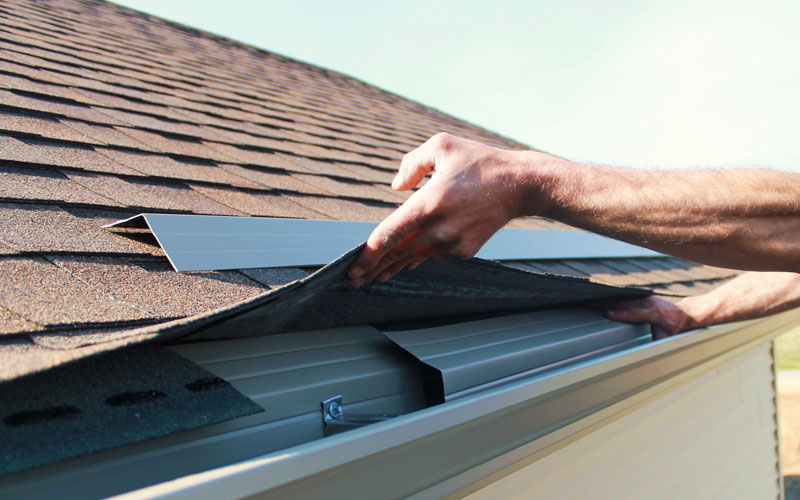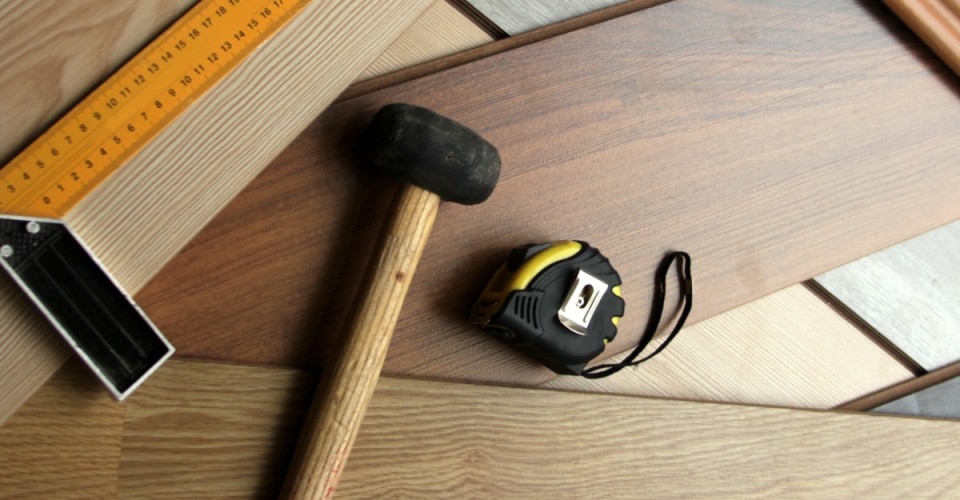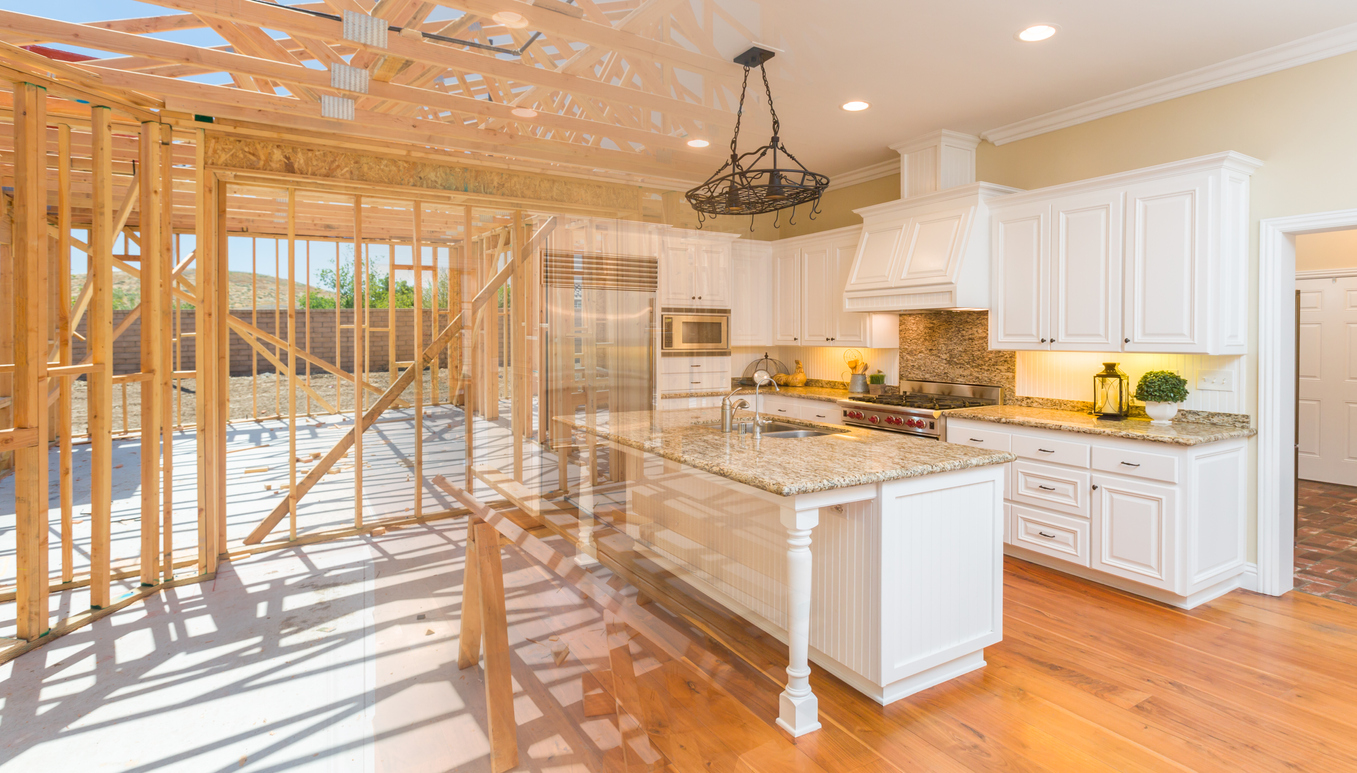Whether your roof replacement is a reactive or a preventative project, there are many benefits of installing a new roof. The value of your home is projected to increase and your energy bills will certainly decrease. Another way it could save you money month-to-month is on your home insurance. Give your provider a call to find out if choosing particular materials will affect your monthly payments.
We understand that replacing a roof isn’t a project that comes around very often. At Porch, we’re here to empower homeowners by providing the tools and confidence to hire great home improvement professionals for their projects. Make sure you’re prepared for every stage of your roof replacement with our informative guide step-by-step guide.
If you’ve submitted a project request on Porch, expect to hear from a few contractors over the next 24-48 hours.
If you haven’t yet:
When the professionals call, these are the questions you should be asking:
- What is your company name, location and phone number?
This information allows you to vet the professional once you’re off the phone. This can be done by viewing their profile page on Porch (this will be listed on your project page) and by searching for reviews on other sites like BBB. - Are you and your subcontractors licensed, bonded and insured?
Bottom line is, if the contractor answers no to this question, you should not hire them. - When would you be able to start a project like mine?
This question will determine the availability of the professional. If you have a specific schedule you need to stick to but the professional won’t be available for a few months, it may be worth considering other options before requesting an estimate. On the other hand, if you need to arrange financial aid before the project starts but the professional has a large job planned for the time that you’d like to start, you will need to know this. - Would you be able to provide references for previous clients?
Like licensing and bonding, references are an extremely good vetting tool. If a professional cannot provide any references for clients, it’s not a good sign.
These are questions relevant to all roof replacement projects but you may have additional questions that are important to you. Asking questions gives the contractor a better perspective of your priorities and will enable you to determine who is right for your project.
You can check whether a license is valid by typing, “check contractor’s license” and your state into a search engine. If you have any questions about this, contact the Porch Homeowner Support team for help.
Roof Options
Replacing your roof is never going to be a cheap project. However, the cost of the project can be flexible by selecting a material that fits your budget and lifestyle. The following prices based off 1,700sq ft roof replacement, including the removal of the existing roof (provided by HomeWyse).
Roof materials
- Asphalt
Lifespan: 15 years
Cost: $6,000-$9,000 - Wood Shingles
Lifespan: 15-25 years
Cost: $11,000-$17,000 - Metal
Lifespan: 40 years
Cost: $18,000-$26,000 - Clay and Concrete Tiles
Lifespan: 50+ years
Cost: $20,000-$28,000 - Slate
Lifespan: 50-100 years
Cost: $20,000-$29,000
Take a look at the 5 most popular Roof Types.
Roof styles
- Hip
Slopes on all four sides, all sides are equal length with a ridge at the top. Good in snowy, windy and rainy environments. It could be argued that they’re more prone to leaks because of they have more joints than a gable roof. - Gable
Triangle-shaped, like a shed. Not a good option if your area is prone to strong winds. Gable roofs are cheaper to install than hip roofs.
Get educated about the Roofing Terms associated with your roof replacement. This way, you’ll be able to understand the contractor’s advice during the estimate.
When selecting the material and style for your roof, beware of climate in your area. If you live in an area that’s prone to extreme winds, humidity or rain/snow fall, precautions will have to be taken to ensure that your roof can withstand the weather.
In warmer climates avoid installing a rubber roof, this will absorb the heat in the summer, raising the temperature of your home. Opting for tile in a lighter color will reflect more sunlight away from the home. If your budget can accommodate a clay tile roof, this is an extremely good option for warmer climates. Clay tiles completely block any heat from entering your home through the roof. It’s important to prevent algae growth caused by humidity and precipitation, metal roofs are algae resistant but other materials can be treated with the necessary algaecides.
In climates prone to storms, a hip-style roof will withstand strong winds better than a gable roof. Although metal sheets are generally less likely to detach in a storm than shingles or tiles, most materials can be installed with storm precautions.
A hip or gable style roof will be ideal for areas that experience a lot of rain or snow. Darker colored tiles or shingles will insulate better when the temperature drops.
Getting estimates
We advise requesting estimates from at least 3 contractors. Not only will this give you an idea of the cost, it will allow you to get to know the contractor and their ideas for your project. This is crucial to selecting the right contractor for you.
Here are a few questions you should make sure you ask your roofer during the first meeting:
- What is the payment schedule and process?
- What warranty do you offer for your workmanship and materials?
- How long have you worked with your subcontractors or crew?
- Do you specialize in roof replacement?
- How long do you predict my project will take?
- Can you provide any customer references?
Take a look at this article on How To Choose The Right Roofing Contractor https://porch.com/advice/finding-the-right-roofing-contractor/.
Permits
This is something incredibly important, that everybody forgets to check. The permit allows for an inspection to take place after the installation to ensure that your roof complies with the local building codes.
A licensed professional should take care of this for you, but make sure that they have!
Contract
Once you’ve accepted a bid from a contractor, you’re well on your way to starting the project. Before any money is exchanged, make sure you have a written contract.
The most important things to look for in your roof replacement contract are:
- A payment schedule
- Details of materials used and their cost and warranty
- Permit information
- Warranty of workmanship
Remember: If you have a change of scope of the contract, it’s extremely important to draw up a ‘Change Order’ form.
Preparing for your project to start
Now you’ve scheduled a time for your roof replacement to start, make sure you’re prepared. The following preparations will ensure that your home is safe for your family and the contractors and that none of your property is damaged.
- Arrange for children and pets to be kept inside throughout the project.
- Relocate your vehicles off site.
- Prune any foliage that protrudes over the roof.
- Figure out the best outlets for the professionals to use.
- Advise your neighbors about the construction.
- Remove any satellite dishes from the roof.
When the project is complete
Once your project is complete, consider asking your contractor for recommendations on how to maintain your roof. Here are a couple of questions that you can ask the contractor about after your project is complete:
- How do you recommend maintaining the roof and how often?
- Where can I review your work?
If you’ve followed these steps to find a great contractor then you’re well on your way to a stress-free roof replacement. At Porch, we understand that accidents happen. If any damage is caused to your property as a result of the professional we can help you make this right. Read about the terms of our Guarantee.
If you have any questions throughout your remodel, the Porch Home Assistant Team will be happy to help. They can be reached via email at homeowner@porch.com.




